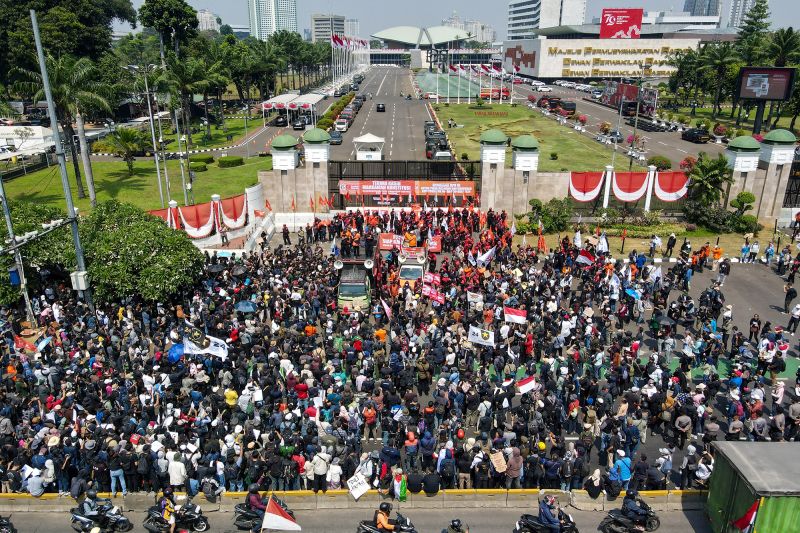
Indonesia in Uproar: Parliament Stalls on Election Law Revisions
At the heart of the political turmoil shaking Indonesia lately, lies a delayed decision by the parliament on a critical election law amendment. This legislation, which was initially scheduled for hearing, has faced an array of challenges, ultimately leading to its deferment. This has sparked widespread protests across the nation, with citizens expressing both their consternation and demand for immediate action on the pending amendment.
The proposed amendment pertains to the election law which currently stipulates a provision for the simultaneous conduct of the presidential, legislative and regional elections. An attempt to delay this amendment has sparked wave after wave of dissent, primarily led by various political factions, civil societies, and everyday Indonesian citizens.
The push for simultaneous elections came into effect back in 2014, which aimed at reducing the cost of holding multiple elections, preventing political instability, and promoting direct people’s participation in the democratic process. This key legislation has been recognized as a fundamental pillar of the country’s democratic process, which is why the delay in addressing its revision has sparked such widespread outcry.
The ongoing protests across the country signify not just frustration against parliamentary inefficiency, but also the citizens’ concerns about political stability and democratic transparency. Some of the key areas where the protests have been most intense include the capital of Jakarta, Surabaya in East Java, and Medan in North Sumatra.
Indeed, the parliament’s indecision has added fuel to the fire. The pivotal reason behind the delay, as indicated by numerous political leaders, is that the consequences of this amendment would render the 2024 elections a rather complex affair. The delay has therefore been seen as a strategic one, igniting further the protester’s anxieties about potential dilution of democratic values and norms.
The protesters are chiefly demanding clarity and timely decision-making from the policymakers. The lack of transparency associated with the delay of this law reform has heightened civil unrest, with citizens’ trust in the government at stake.
The impact of these protests extends beyond just political tension. Economic implications are projected to encompass falling stock market indices and a wavering business atmosphere in the country. The protests are drawing global attention, undoubtedly impacting Indonesia’s international relations, as foreign nations navigate the political instability.
These demonstrations also highlight the power and will of the Indonesian citizens, embodying their commitment to uphold democracy and ensure the sanctity of their political system. The cohesion among various factions of society, despite their differences, towards the shared cause of preventing perceived political backpedalling, illustrates a distinct characteristic of
